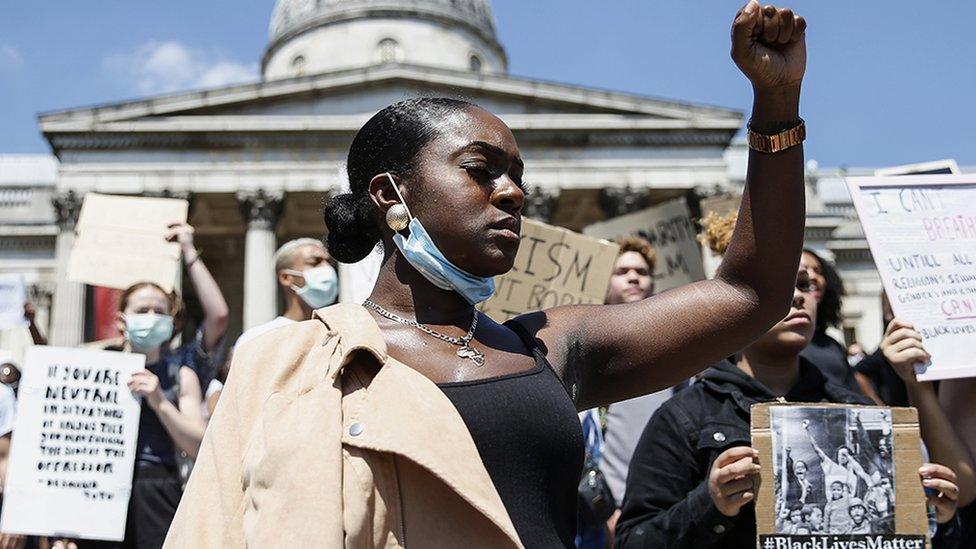George Floyd: Should we stop sharing videos of black trauma?
- Published
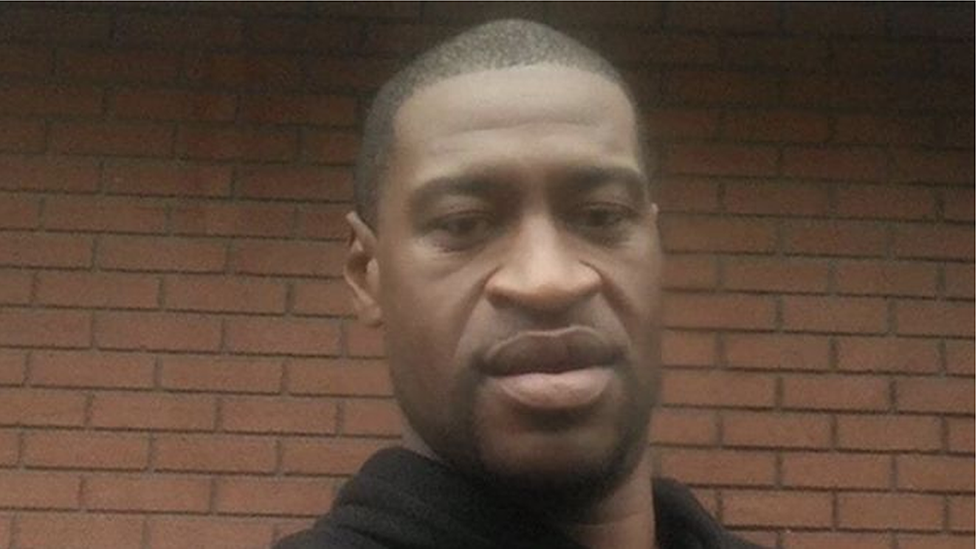
Footage of George Floyd's last moments will probably have found its way into your social feeds at some point in the year since his death.
At 10 minutes and nine seconds long, it was the viral video that sparked protests across the world.
It also helped bring Floyd's killer, police officer Derek Chauvin, to trial.
But the content is extremely distressing and for some, sharing videos of aggressions against black people is more damaging than helpful.
'I didn't have control'
Sharing photos or videos of someone's trauma or pain is often referred to as "trauma porn".
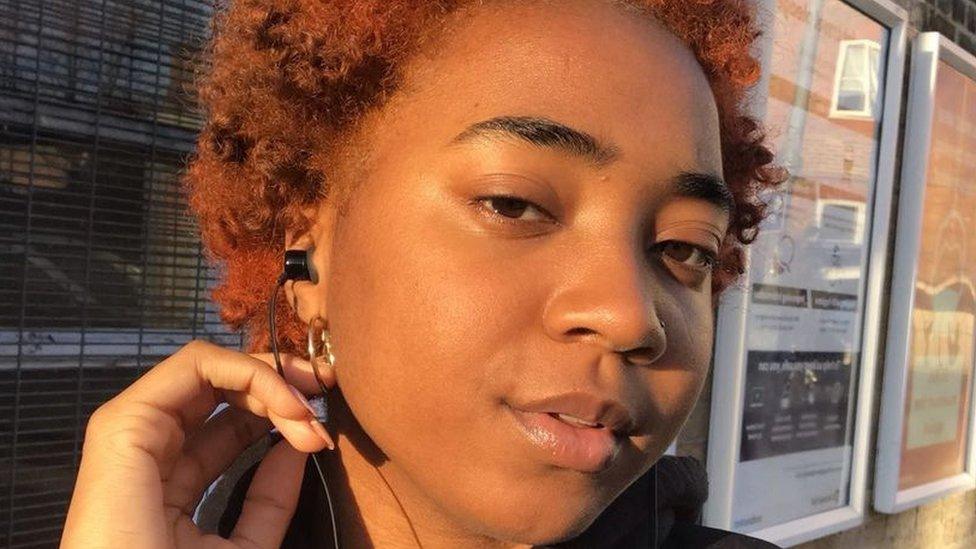
'I had to take time off of social media and indulge in other things just do get away from it'
Jaydeene Binns remembers the moment she first saw the George Floyd clip on Instagram.
"I saw the video by accident because somebody hadn't put a trigger warning before showing it on their story. I didn't have any sort of control," the 20-year-old tells Radio 1 Newsbeat.
"If that was my family member, how would I ever feel comfortable with their last moments being on an Insta story?"
Jaydeene believes the sharing of videos like this shows how society devalues the experiences of black people.
"That person's life has been disrespected," she says.
"Having brutality videos reminds you how worthless some people might see you and that's really hard to take in."
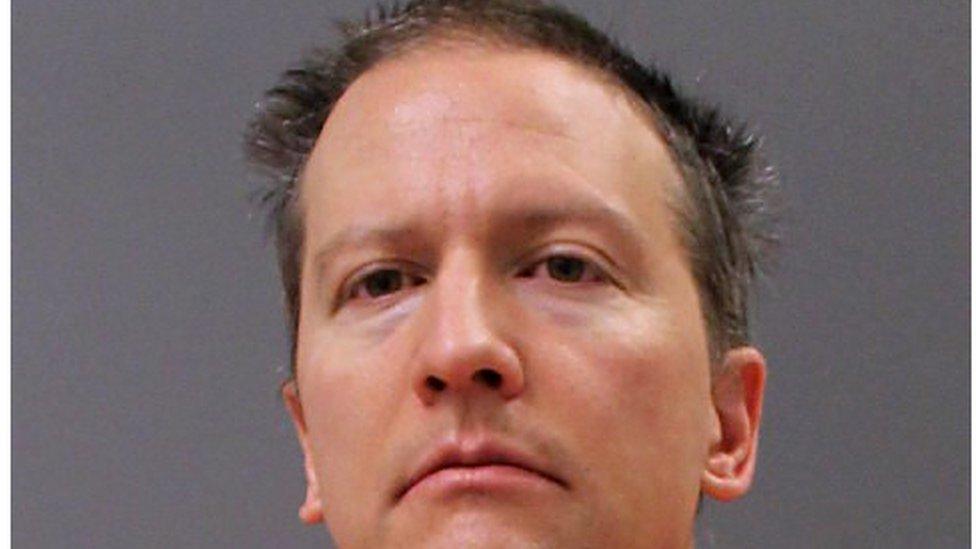
Derek Chauvin was found guilty of second-degree murder, third-degree murder and manslaughter
But some argue that videos like this need to go viral to raise awareness.
Darnella Frazier was on her way to the shops when she saw George Floyd being arrested and she was the one who filmed the brutality that followed.
The 17-year-old's footage became a key piece of evidence in the trial of Derek Chauvin, with her lawyer saying: "It's like the civil rights movement was reborn in a whole new way, because of that video."
'We witnessed a murder'
Trauma psychotherapist Lizandra Leigertwood says viewing content like this can have a negative effect on mental health.
"It connects to our own trauma and reminds us of the suffering that we've had to endure for many years, that we've been gaslighted about and not acknowledged it as a real thing," she says.
"I was horrified at how often the video was being shared and I think the impact of that was almost minimised in terms of how it was just out there in the domain, when actually what we were witnessing was a murder."
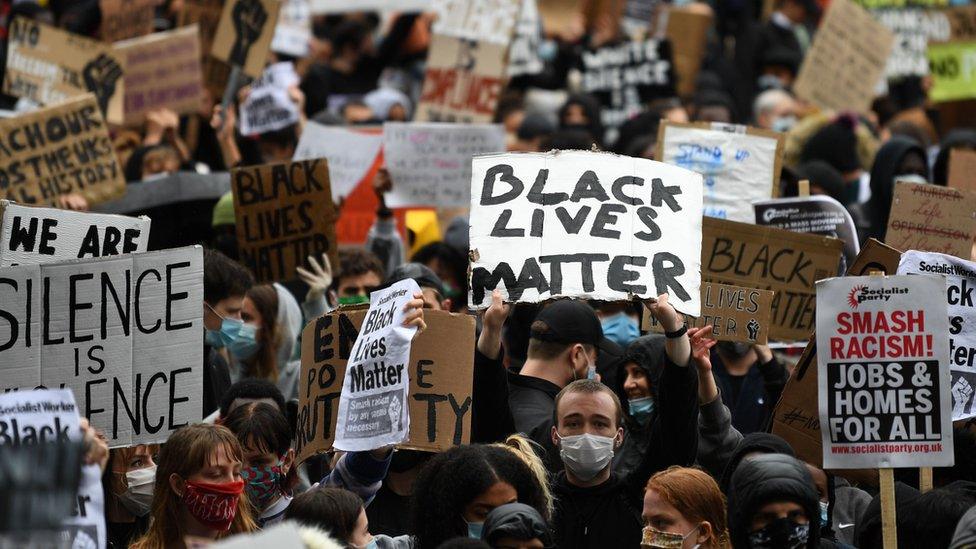
George Floyd's death led to Black Lives Matter protests worldwide
Lizandra suggests there are other ways to help raise awareness without sharing the content - like talking about it, or just flagging what you're sharing so followers know what to expect.
"Add trigger warnings so we're able to decide for ourselves if we're in a place to witness that," she says.
Jaydeene agrees. She says trigger warnings give people more control over what they're about to expose themselves to.
"Even before that, you should think 'does sharing this do anything? Are there any petitions? Is there anything we can do instead of just watching?'"
Lizanda says sharing and watching videos of black trauma can lead to distress and desensitisation.
And desensitisation is something that 21-year-old Crystal can relate to. She feels guilty about becoming numb to this kind of footage so she didn't want to give her real name.
'You just become numb'
"Being exposed to movies about slavery and police brutality online, uncensored, has desensitised me," she says.
"Even seeing or hearing about an unlawful death like George Floyd's made me feel like 'oh it's just another black man killed by a police officer again'."
"When you're exposed to these types of things your whole life, you just become numb".
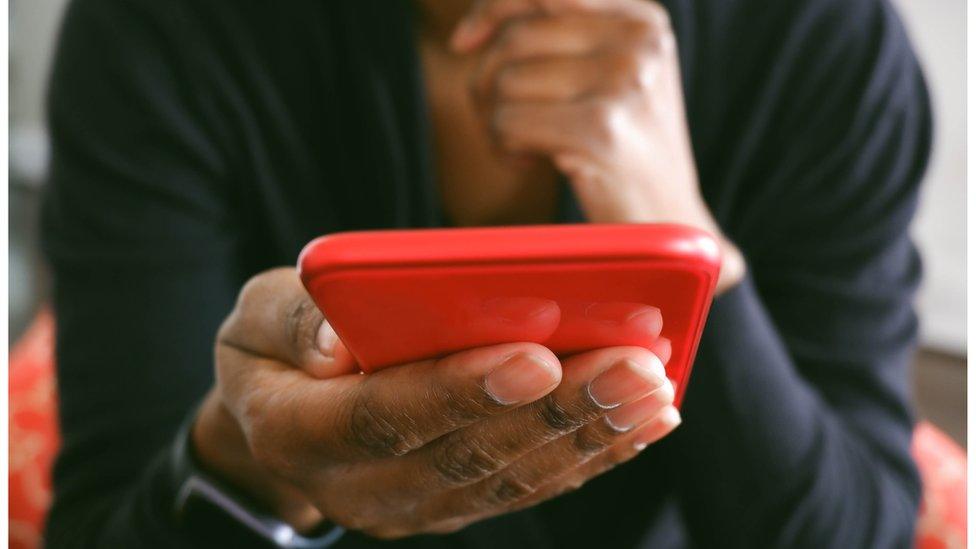
Lizandra says it's important to protect yourself from watching too much 'trauma porn'
Protecting your mental health
If you have watched traumatic content online and are feeling overwhelmed, Lizandra's advice is to practice self care.
She suggests unfollowing accounts if they keep showing things that are triggering.
"We tend to be quite compassionate and we want to know what's going on in the world, but we can't do that at the expense of our mental health," she says.
"It's okay to protect ourselves from that and not constantly expose ourselves to black pain.
"We can also expose ourselves to creative outlets, black joy and black arts."


Follow Newsbeat on Instagram, external, Facebook, external, Twitter, external and YouTube, external.
Listen to Newsbeat live at 12:45 and 17:45 weekdays - or listen back here.
Related topics
- Published7 June 2020
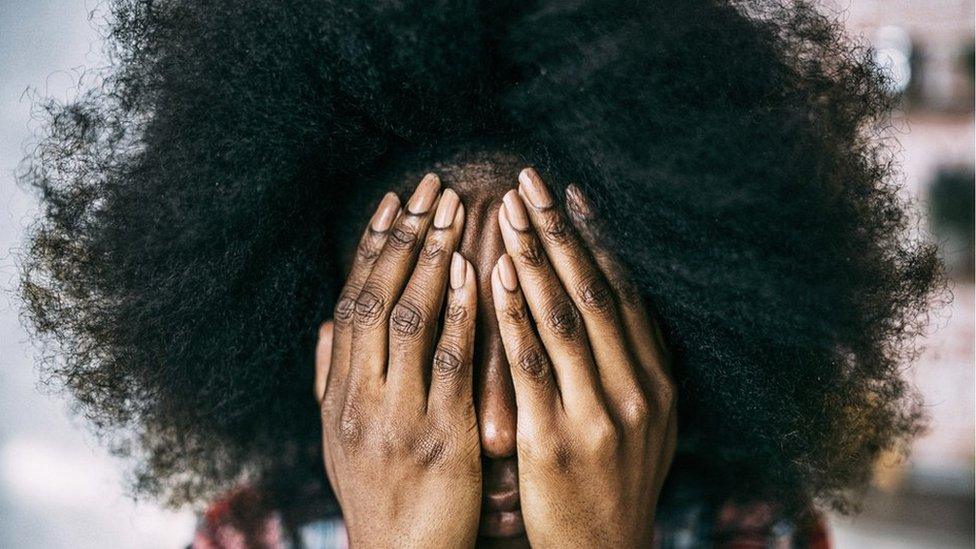
- Published11 June 2020
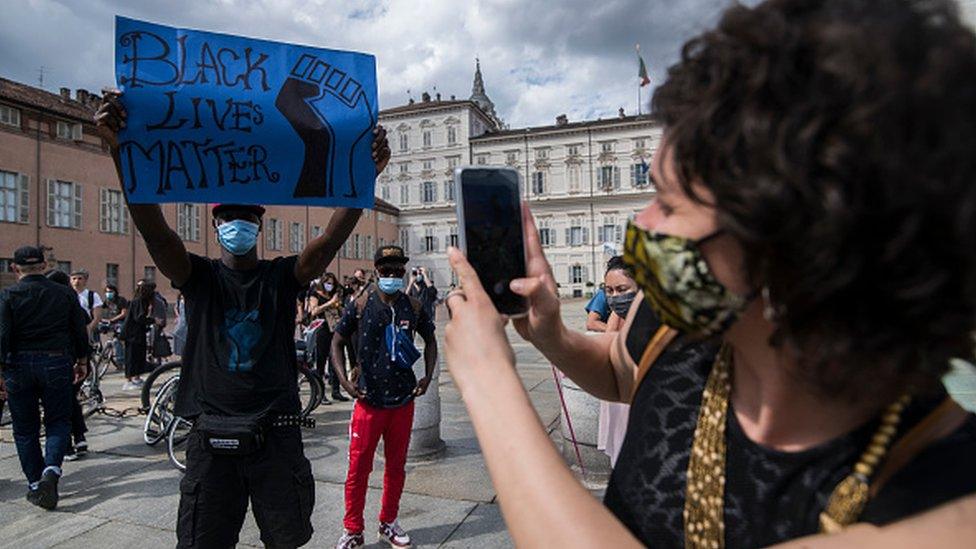
- Published2 June 2020
